How To Use Rhythm To Create Music On Guitar
by Simon Candy
 In this video, you learn how to create music with rhythm on the guitar.
In this video, you learn how to create music with rhythm on the guitar.
We’ll take a single rhythm pattern and show you how to use it in various musical scenarios, unlocking the power of rhythm to become a better guitarist and musician!
You learn:
• How to create dynamic chord progressions and strumming patterns with rhythm
• How to apply rhythm to melodies and solo lines
• How to use rhythm to shape your overall musicality
This practical approach highlights the importance of rhythm in every aspect of music and provides a fun, effective way to improve your timing and creativity as a guitarist.
Whether you’re strumming chords or crafting solos, mastering rhythm will take your playing to the next level!
Watch the video below to learn more:
Creating With Rhythm
Below are several examples of applying the same one-bar rhythm to various aspects of your guitar playing. Watch the video above for detailed explanations and demonstrations of each exercise below.
The Rhythm
The following is the rhythm sequence we will be using for the exercises below:

Strumming
Let’s start by creating a strumming pattern with our rhythm and applying it to the following chord progression:
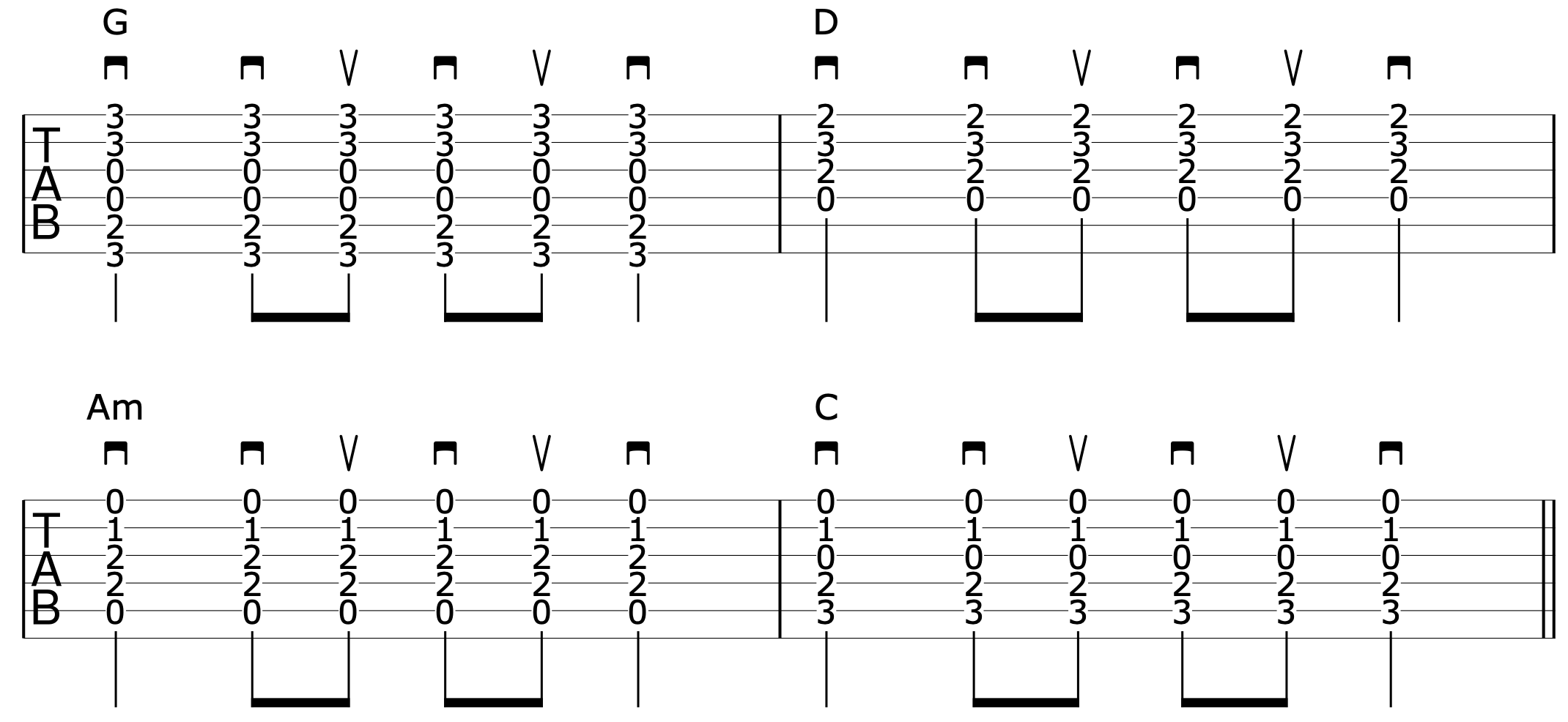
Arpeggiating
• Open Chords
Next, we take our rhythm and create a picking sequence with it to apply to the same chord progression from above:
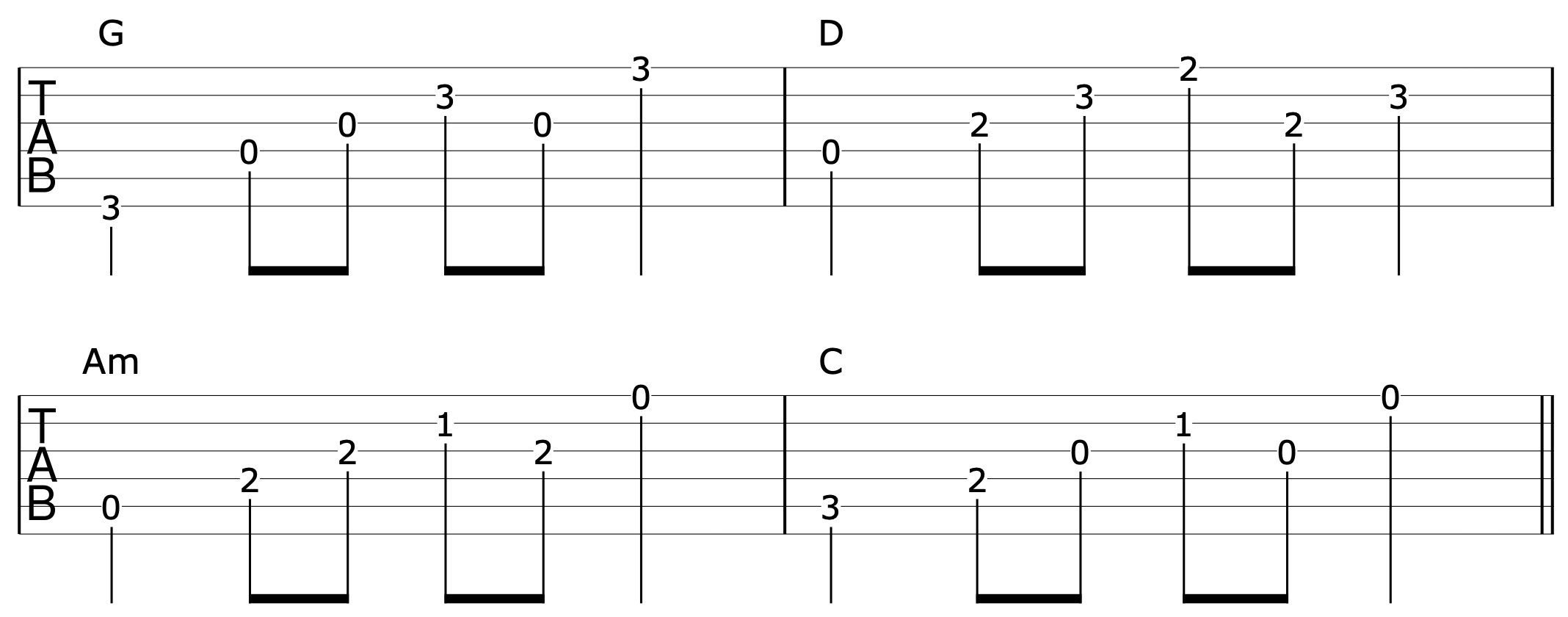
• Triads
We could also create a similar picking pattern with our rhythm and apply it to root position triads on string set 4, 3, 2:
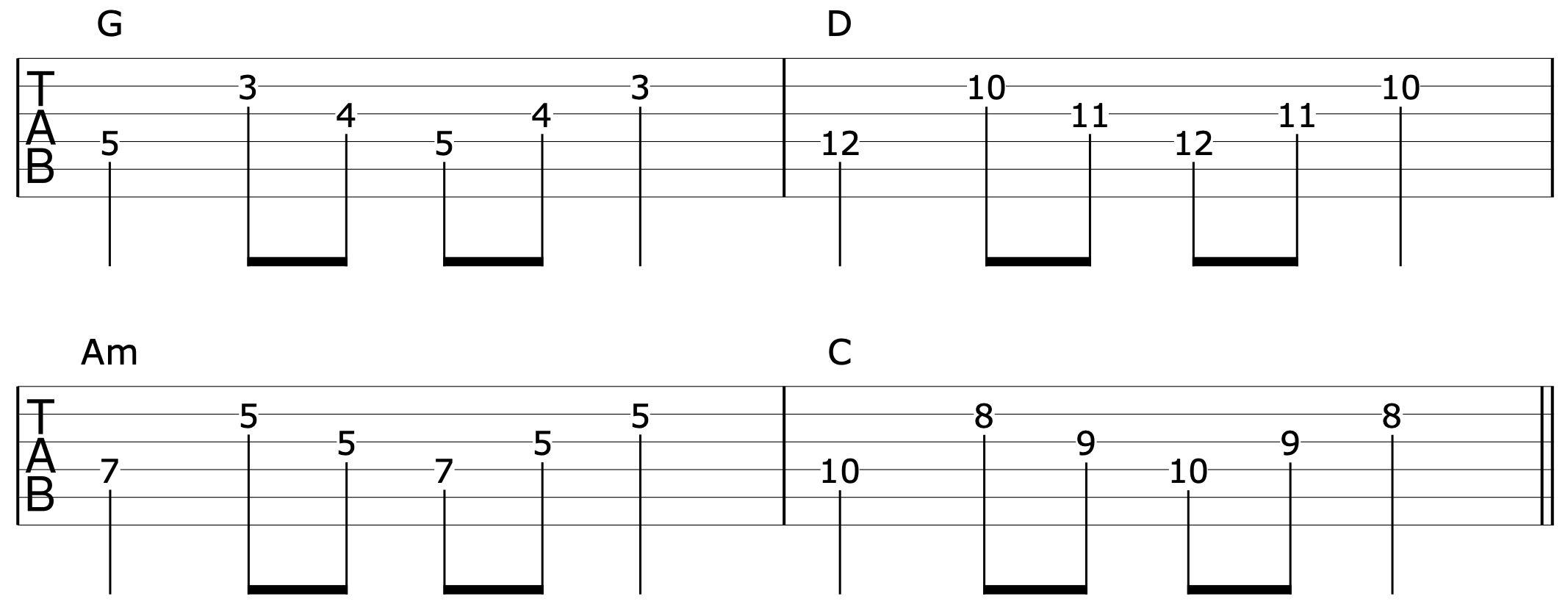
Soloing
The following are some ways we can apply our rhythm to scales and arpeggio patterns.
Watch the video above to learn why this is so important—and how doing it can make a huge difference in your playing!
• Pentatonic Scale
Here is our rhythm applied to a G major pentatonic scale. Simply play up and down the pattern, applying the one bar rhythm sequence:
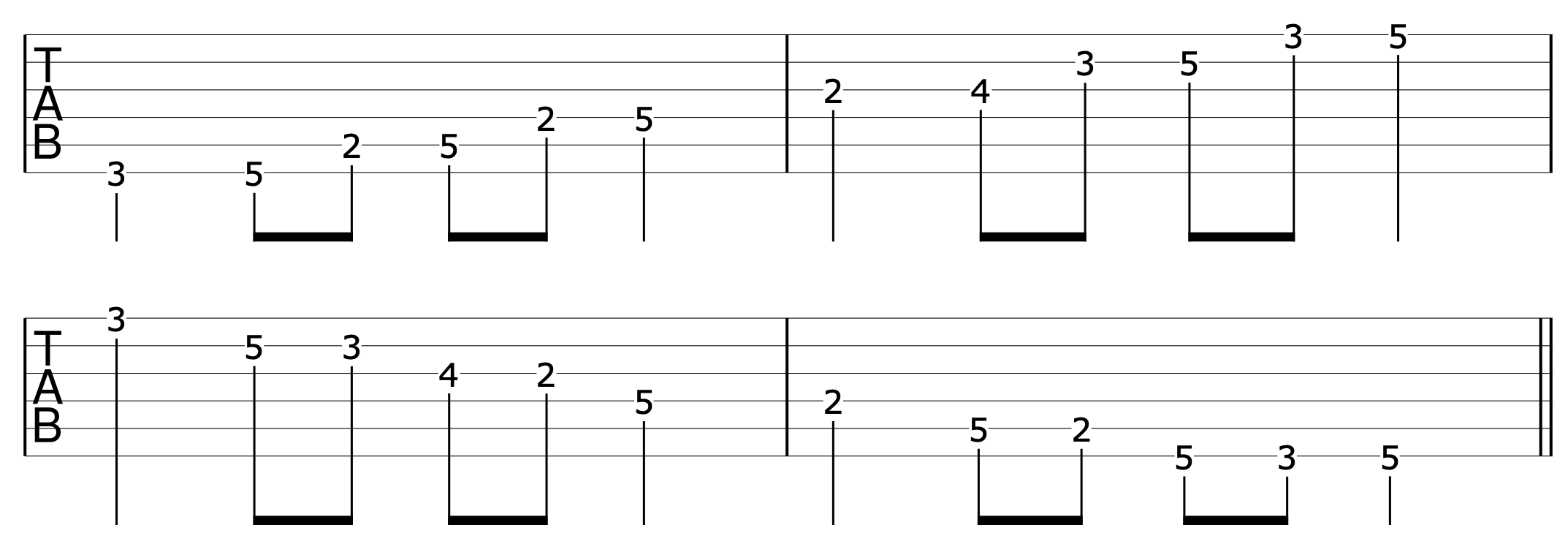
• Major Scale
Here is our rhythm applied to a 3 note per string G major scale. Simply play up and down the pattern, applying the one bar rhythm sequence:
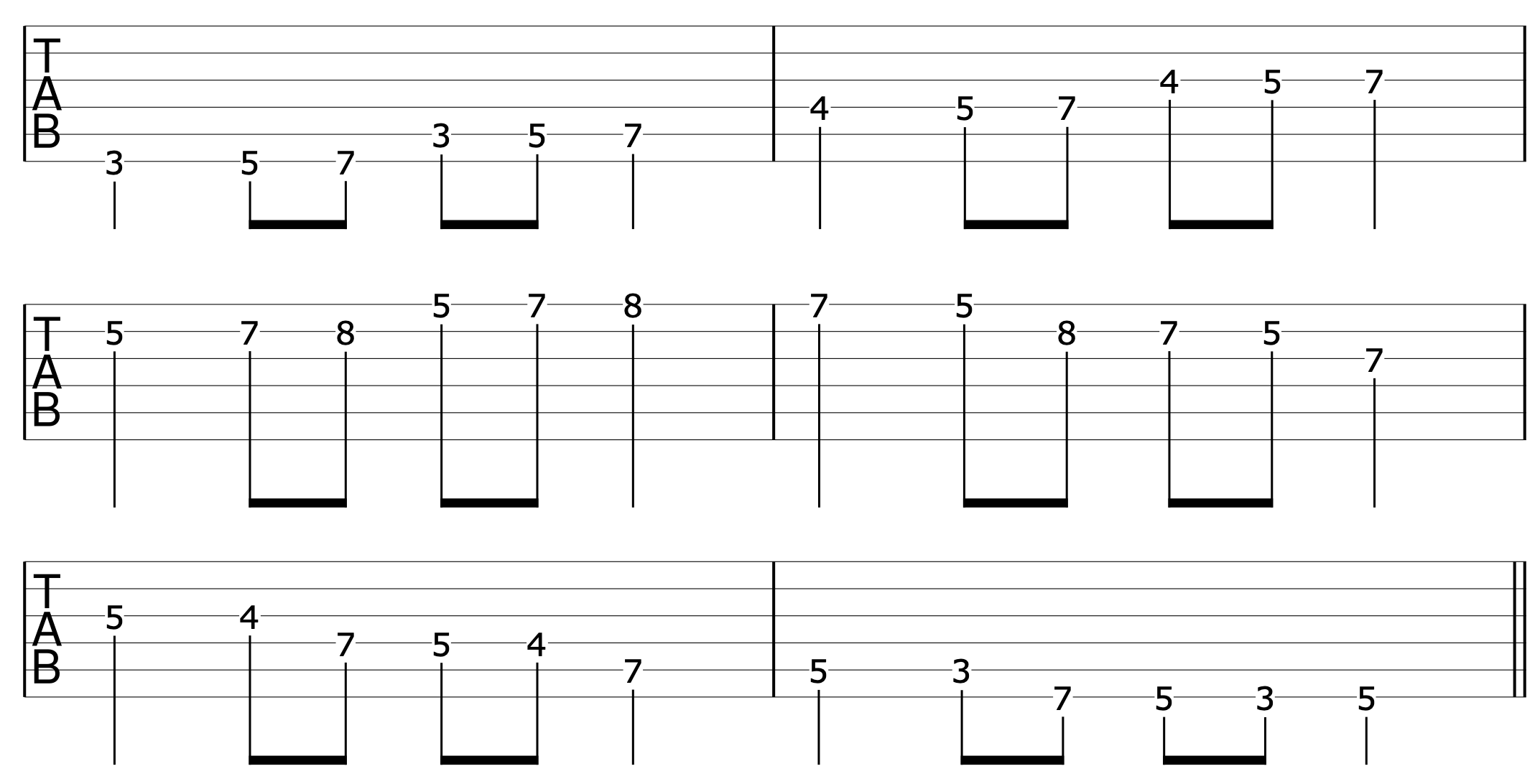
• Major Arpeggio
Here is our rhythm applied to a G major arpeggio. Simply play up and down the pattern, applying the one bar rhythm sequence:
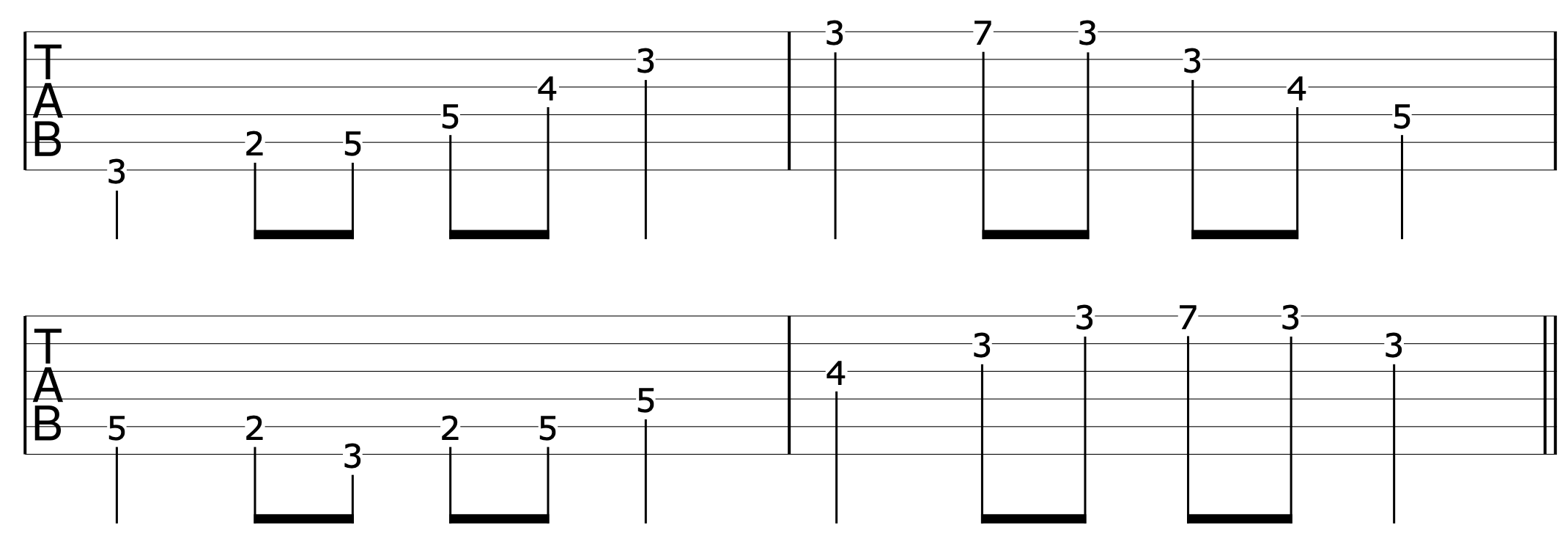
Discover beautiful and expressive ways to accompany a singer on one guitar